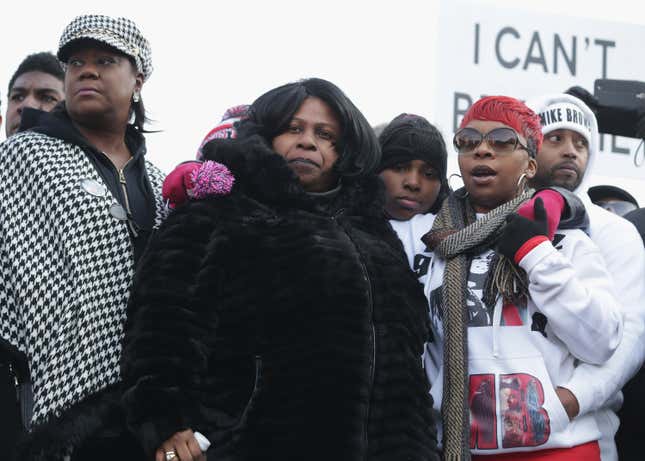Tamir Rice's Mother Calls Tamika Mallory and Celebrity BLM Activists 'Clout Chasers'
Latest

Samaria Rice, Tamir Rice’s mother, is slamming activist Tamika Mallory for being a “clout chaser” after her appearance alongside Lil Baby at Sunday night’s Grammys.
The singer delivered a live performance of “The Bigger Picture,” a song about police brutality and the Black Lives Matter movement that he released in June, amid mass protests in the wake of George Floyd’s death. Lil Baby was joined by Killer Mike, who rapped a Run the Jewels verse, and Mallory, who recited a poem from a podium, flanked by protester-performers:
“It’s a state of emergency; it’s been a hell of a year, hell for over 400 years,” Mallory said. “My people, it’s time we stand, it’s time we demand the freedom this land promises. President Biden, we demand justice, equity, policy, and everything else that freedom encompasses. To accomplish this, we don’t need allies, we need accomplices. It’s bigger than black and white. This is not a dream; this is our plight. Until freedom!”
Mallory was one of the original co-chairs of the Women’s March, but quietly stepped down with two other Women’s March leaders following allegations of anti-Semitism and organizational mismanagement in 2019. In the spring, Mallory spoke at rallies for George Floyd and Breonna Taylor.
-

-

-

-

-

-

-

-

-

-

-

-

-

-

-

-

-

-

-

-

-

-

-

-

-

-

-

-

-

-

-

-

-

-

-

-

-

-

-

-








































